|
Here are 5 small individual actions that help save you gas, build community, and can have a huge impact for our earth:
Pope Benedict XVI reminded us that our environment is God's gift to all people, and the use we make of it entail a shared responsibility for all humanity, especially the poor and future generations. "We are all responsible for the protection and care of the environment. This responsibility knows no boundaries. In accordance with the principle of subsidiarity it is important for everyone to be committed at his or her proper level, working to overcome the prevalence of particular interests." (2010) Consider this... Everything starts with a small step. "A little leaven leaveneth the whole lump.” Galatians 5:9
0 Comments
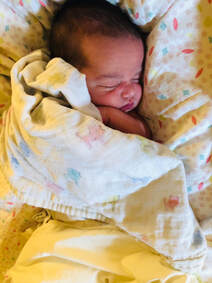 Mariah Grace Mimoni Mariah Grace Mimoni
In God’s kindness, the hope, joy and love of Easter arrived early to our family this year. We welcomed a little morning star – Mariah Grace Mimoni – into our arms on March 25, the Solemnity of the Annunciation of Our Lord. Mariah was born in the wee hours of the morning, safely in the quiet intimacy of our home.
For me, Mariah’s soft, chubby cheeks and teeny tiny hands are an incarnational reminder of what trusting God with every fear looks like. To me she is an enfleshment of the Angel Gabriel’s exhortation to Mary, “Do not be afraid” (Luke 1:30). I cannot stop staring into her bright face with a heart full of warmth, gratitude and heightened trust. The reasons are manifold and involve many miraculous details related to her gestation and birth. These nine months were dominated by the principle concern to protect her which, many times, seemed to be against all odds. This was especially the case with the backdrop of a pandemic. News headlines read that pregnant women who contracted Covid in pregnancy were more likely to give birth prematurely to low-birth-weight babies, along with other potential complications. That’s if the mother herself could survive the illness. Add to these unusually daunting concerns that our last pre-pandemic baby was low-birth-weight. I contracted Covid in September, at the height of Covid fears about the Delta variant – when Mariah was only 13 weeks gestation. In all honesty, this was a very uncertain and difficult time. I was afraid. In difficult times, when I feel weak and helpless I cling to this Scripture passage: “‘My grace is sufficient for you, for power is made perfect in weakness.’ So, I will boast all the more gladly of my weaknesses, so that the power of Christ may dwell in me. Therefore I am content with weaknesses, insults, hardships, persecutions, and calamities for the sake of Christ; for whenever I am weak, then I am strong” (2 Cor 9-10). My faith gave me the strength to carry on, while still experiencing a yo-yo-like daily existence. In Alberta, one week we were “open for summer” with the promise of no more mandates, and the next we were faced with our harshest mandates, including the restriction exemption program, QR Code and national and international travel restrictions to name a few. These outward signs pointed to an inward reality within the hearts of many Canadians: fear. This fear has had very real-world consequences including loss of hope and trust in the future. According to Statistics Canada there has been a decline in Canada’s birth rate during the pandemic.  Two year old Maggie becomes a big sister Two year old Maggie becomes a big sister
All glory and praise be to our God, I am happy to share a different story – one of faith and trust, even if it’s imperfect with shaky knees. Mariah was not born preterm, as the headlines warned. She was actually five days overdue. Neither was she underweight. In fact, she recorded the biggest birth weight of her five older siblings – 8lbs 11oz.
Call me and my husband fools for Christ, daring to bring another baby into this broken world. But, with the Holy Spirit as our guide, we’ve faced our fears head-on, trusting that God has a good plan for our lives (Jer 29:11). We believe, if we give God our childlike “yes”, He will work out the details. Mariah’s life testifies to these fine-tuned details. And her life emboldens us concerning the certainty that He will continue to do so, no matter what those trembling knees caution sometimes. We had the “perfect nuclear family – a boy and a girl” and then we kept being open to new life to the surprise of family and friends. God has gifted us with a son, three daughters, a miscarried baby and then two more daughters. I was an only child for seven years before my brother, and then sister, came along. My husband is the middle child of three. Raising a bigger-than-average family is new territory for us, and we certainly don’t have all the answers. A question we get asked is: How do you do it? I can tell you, whatever we have managed to accomplish, it’s by the grace of God. By grace, we have been able to hold fast to the belief that we are not called to be successful in the eyes of the world, but rather faithful to God’s call to grow in love. And family life is rich in opportunities to sacrifice and put others before oneself. It has been so beautiful to watch Mariah’s siblings jockey for a chance to change her diaper, burp her, hold her, talk to her, rock her to sleep. The school of family life is not something you can pay someone to take lessons to learn. It is a gift freely given. It’s where The Potter moulds our hearts of stone into hearts of flesh (Ezek 36:26). Being open to life is a spiritual discipline. I’ve thrown out the saying, “God doesn’t give you more than you can handle” and replaced it with “Indeed, God has given me more than I can handle, so that I can more easily place my trust in Him, instead of myself, my plans, my wants, my needs.” 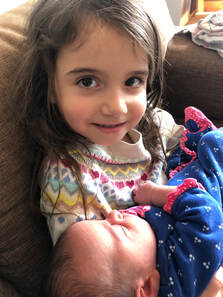 Five year old Anne with Mariah Five year old Anne with Mariah
When we’ve been worried about how we are going to pay our next bill, we cut back our expenses, or someone will drop by with a bag of clothes, or ask if I’d consider providing before and after school care. When I’ve been ill with morning sickness, I’ve scaled back my expectations and aimed to just cover the basics. Would I like to be sipping a pina colada on a tropical island, of course, but these childbearing years are ones I won’t be able to get back. The island vacation can wait.
My prayer was that Mariah’s arrival would bring hope and healing, and that intention is being answered each day. New life has the potential to bring out the best in humanity. The isolation and distancing of relationships in the Covid-restricted fall and winter has been replaced with community, connection and support in the spring. Leading up to Mariah’s birth, friends gathered in person and over the phone to pray with me. Every day for three weeks family and friends dropped off a meal at our house to help with the transition of becoming a family of eight. Our parents braved the airports to come visit and meet their new granddaughter. We celebrated the Easter Triduum in person this year with a three-week-old Mariah in tow, because we simply could not take our freedom to worship and freely assemble for granted. If there is one thing Covid has taught me, it’s to have gratitude for the present moment. We can’t change the past nor control the future; all we have is now. And children – babies in particular – help tremendously to focus our attention on the here and now. This Easter season I’m excited to build into our family anew. I’m excited to live in the moment as we faithfully fumble forward finding our footing, forming new routines, forging new relationships and experiences. In these days of celebration we look to our Annunciation baby to inspire Marian devotion and faith. “Then Mary said, ‘Here am I, the servant of the Lord; let it be with me according to your word’” (Luke 1:38). The question I kept pondering during my pregnancy was: what would happen if I placed my trust in God? In His kindness the answer was the gift of Mariah. This Easter season I invite you to join me in continuing to ponder this question, especially when new fears and doubts arise. Jesus, I trust in You.
In preparing for this great feasting season of Easter, we abstained, prayed and gave alms. What would happen if we lived the Easter season with as much fervour as we live Lent? What can we do to colour our spiritual lives with Easter joy during this liturgical season?
Why should Lent be the only time we make resolutions? God has graces in store for us this season, just as he did during Lent. We only need to keep our eyes peeled so that we don’t miss them. "fixing our eyes on Jesus, the pioneer and perfecter of faith." ~ Hebrews 12:2 Excerpts taken from Fr. John Bartunek's article in SpiritualDirection.com:
"How can we celebrate the Easter Season more fully?"
HOLY WEEK
HOLY THURSDAY
HOLY SATURDAY & EASTER
MEETING WITH REPRESENTATIVES OF INDIGENOUS PEOPLES IN CANADA
ADDRESS OF HIS HOLINESS POPE FRANCIS Clementine Hall, Friday, 1st April 2022 | [Multimedia] Dear brothers and sisters, Good morning and welcome! I thank Bishop Poisson for his kind words and each of you for your presence here and for the prayers that you have offered. I am grateful that you have come to Rome despite the difficulties caused by the pandemic. Over the past few days, I have listened attentively to your testimonies. I have brought them to my thoughts and prayers, and reflected on the stories you told and the situations you described. I thank you for having opened your hearts to me, and for expressing, by means of this visit, your desire for us to journey together. I would like to take up a few of the many things that have struck me. Let me start from a saying that is part of your traditional wisdom. It is not only a turn of phrase but also a way of viewing life: “In every deliberation, we must consider the impact on the seventh generation”. These are wise words, farsighted and the exact opposite of what often happens in our own day, when we run after practical and immediate goals without thinking of the future and generations yet to come. For the ties that connect the elderly and the young are essential. They must be cherished and protected, lest we lose our historical memory and our very identity. Whenever memory and identity are cherished and protected, we become more human. In these days, a beautiful image kept coming up. You compared yourselves to the branches of a tree. Like those branches, you have spread in different directions, you have experienced various times and seasons, and you have been buffeted by powerful winds. Yet you have remained solidly anchored to your roots, which you kept strong. In this way, you have continued to bear fruit, for the branches of a tree grow high only if its roots are deep. I would like to speak of some of those fruits, which deserve to be better known and appreciated. First, your care for the land, which you see not as a resource to be exploited, but as a gift of heaven. For you, the land preserves the memory of your ancestors who rest there; it is a vital setting making it possible to see each individual’s life as part of a greater web of relationships, with the Creator, with the human community, with all living species and with the earth, our common home. All this leads you to seek interior and exterior harmony, to show great love for the family and to possess a lively sense of community. Then too, there are the particular riches of your languages, your cultures, your traditions and your forms of art. These represent a patrimony that belongs not only to you, but to all humanity, for they are expressions of our common humanity. Yet that tree, rich in fruit, has experienced a tragedy that you described to me in these past days: the tragedy of being uprooted. The chain that passed on knowledge and ways of life in union with the land was broken by a colonization that lacked respect for you, tore many of you from your vital milieu and tried to conform you to another mentality. In this way, great harm was done to your identity and your culture, many families were separated, and great numbers of children fell victim to these attempts to impose a uniformity based on the notion that progress occurs through ideological colonization, following programmes devised in offices rather than the desire to respect the life of peoples. This is something that, unfortunately, and at various levels, still happens today: ideological colonization. How many forms of political, ideological and economic colonization still exist in the world, driven by greed and thirst for profit, with little concern for peoples, their histories and traditions, and the common home of creation! Sadly, this colonial mentality remains widespread. Let us help each other, together, to overcome it. Listening to your voices, I was able to enter into and be deeply grieved by the stories of the suffering, hardship, discrimination and various forms of abuse that some of you experienced, particularly in the residential schools. It is chilling to think of determined efforts to instil a sense of inferiority, to rob people of their cultural identity, to sever their roots, and to consider all the personal and social effects that this continues to entail: unresolved traumas that have become intergenerational traumas. All this has made me feel two things very strongly: indignation and shame. Indignation, because it is not right to accept evil and, even worse, to grow accustomed to evil, as if it were an inevitable part of the historical process. No! Without real indignation, without historical memory and without a commitment to learning from past mistakes, problems remain unresolved and keep coming back. We can see this these days in the case of war. The memory of the past must never be sacrificed at the altar of alleged progress. I also feel shame. I have said this to you and now I say it again. I feel shame – sorrow and shame – for the role that a number of Catholics, particularly those with educational responsibilities, have had in all these things that wounded you, in the abuses you suffered and in the lack of respect shown for your identity, your culture and even your spiritual values. All these things are contrary to the Gospel of Jesus Christ. For the deplorable conduct of those members of the Catholic Church, I ask for God's forgiveness and I want to say to you with all my heart: I am very sorry. And I join my brothers, the Canadian bishops, in asking your pardon. Clearly, the content of the faith cannot be transmitted in a way contrary to the faith itself: Jesus taught us to welcome, love, serve and not judge; it is a frightening thing when, precisely in the name of the faith, counter-witness is rendered to the Gospel. Your experiences have made me ponder anew those ever timely questions that the Creator addresses to mankind in the first pages of the Bible. After the first sin, he asks: “Where are you?” (Gen 3:9). Then, a few pages later, he asks another question, inseparable from the first: “Where is your brother?” (Gen 4:9). Where are you? Where is your brother? These are questions we should never stop asking. They are the essential questions raised by our conscience, lest we ever forget that we are here on this earth as guardians of the sacredness of life, and thus guardians of our brothers and sisters, and of all brother peoples. At the same time, I think with gratitude of all those good and decent believers who, in the name of the faith, and with respect, love and kindness, have enriched your history with the Gospel. I think with joy, for example, of the great veneration that many of you have for Saint Anne, the grandmother of Jesus. This year I would like to be with you on those days. Today we need to reestablish the covenant between grandparents and grandchildren, between the elderly and the young, for this is a fundamental prerequisite for the growth of unity in our human family. Dear brothers and sisters, it is my hope that our meetings in these days will point out new paths to be pursued together, instil courage and strength, and lead to greater commitment on the local level. Any truly effective process of healing requires concrete actions. In a fraternal spirit, I encourage the Bishops and the Catholic community to continue taking steps towards the transparent search for truth and to foster healing and reconciliation. These steps are part of a journey that can favour the rediscovery and revitalization of your culture, while helping the Church to grow in love, respect and specific attention to your authentic traditions. I wish to tell you that the Church stands beside you and wants to continue journeying with you. Dialogue is the key to knowledge and sharing, and the Bishops of Canada have clearly stated their commitment to continue advancing together with you on a renewed, constructive, fruitful path, where encounters and shared projects will be of great help. Dear friends, I have been enriched by your words and even more by your testimonies. You have brought here, to Rome, a living sense of your communities. I will be happy to benefit again from meeting you when I visit your native lands, where your families live. I won’t come in the winter! So I will close by saying “Until we meet again” in Canada, where I will be able better to express to you my closeness. In the meantime, I assure you of my prayers, and upon you, your families and your communities I invoke the blessing of the Creator. I don’t want to end without saying a word to you, my brother Bishops: Thank you! Thank you for your courage. The Spirit of the Lord is revealed in humility. Before stories like the one we heard, the humiliation of the Church is fruitfulness. Thank you for your courage. I thank all of you! ______________________ Text courtesy of Libreria Editrice Vaticana |
Author
Catholic Pastoral Centre Staff and Guest Writers Archives
July 2024
Categories
All
|
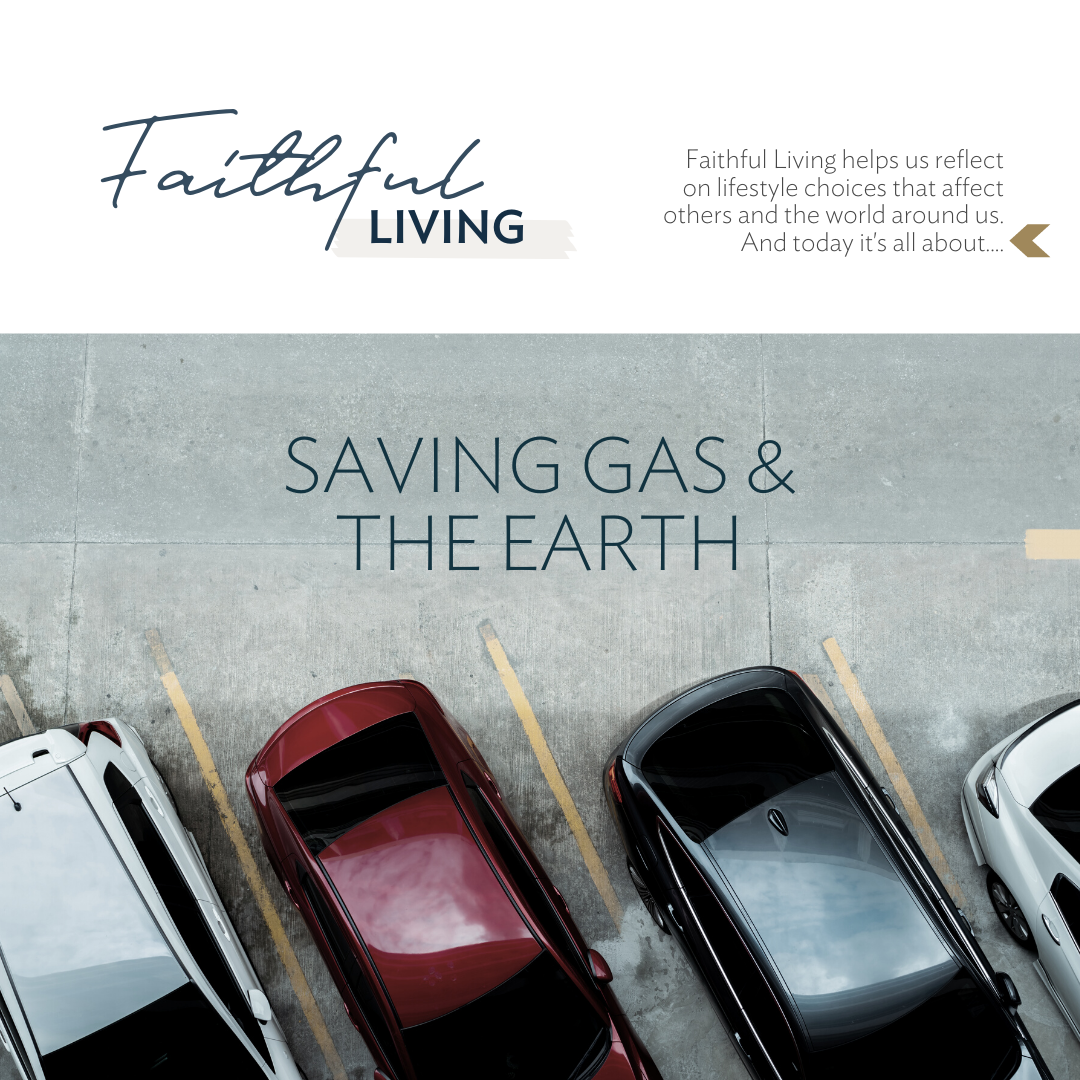
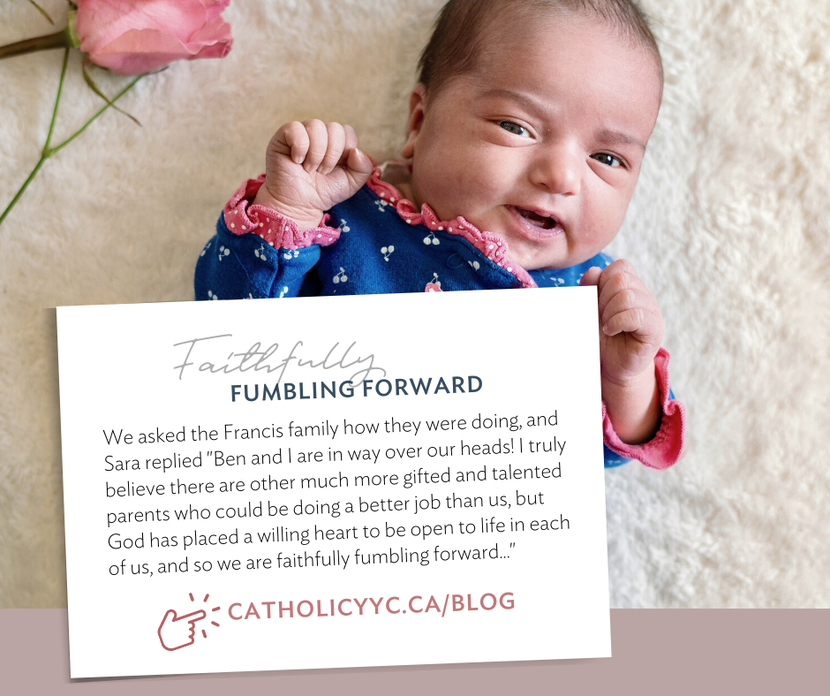
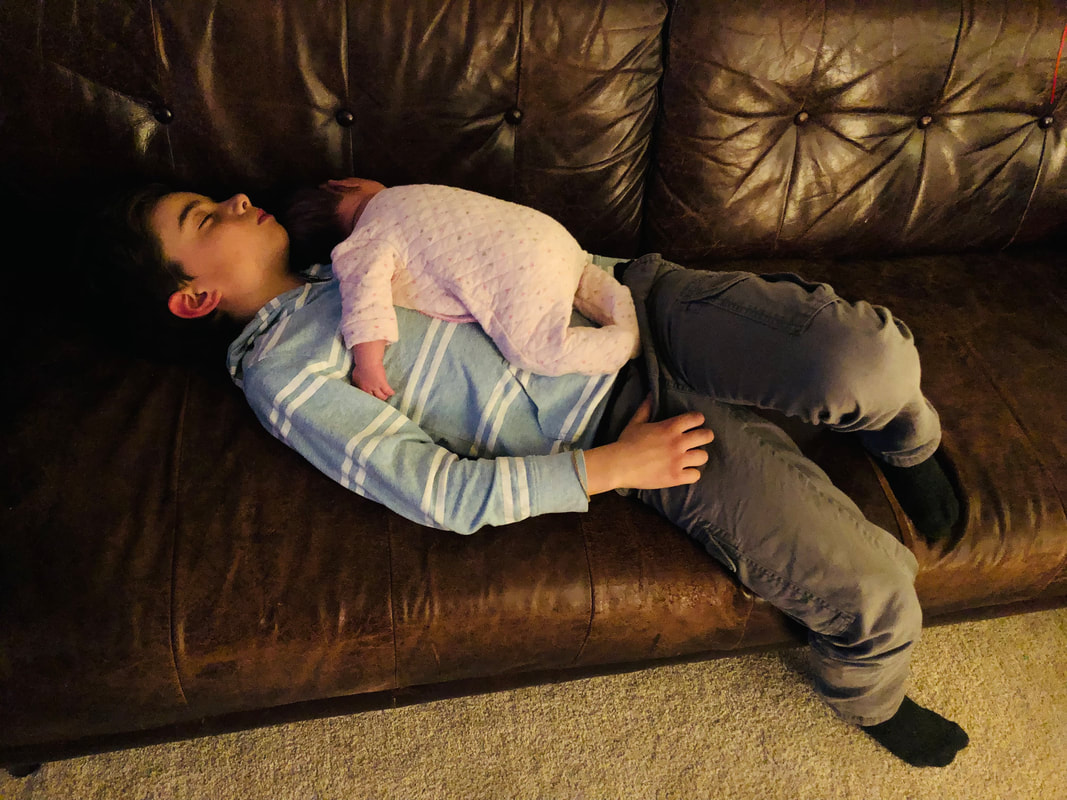
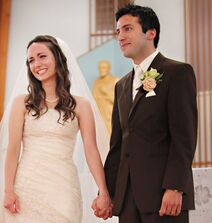
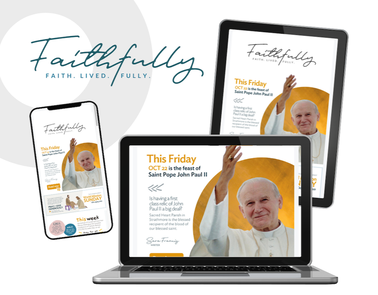
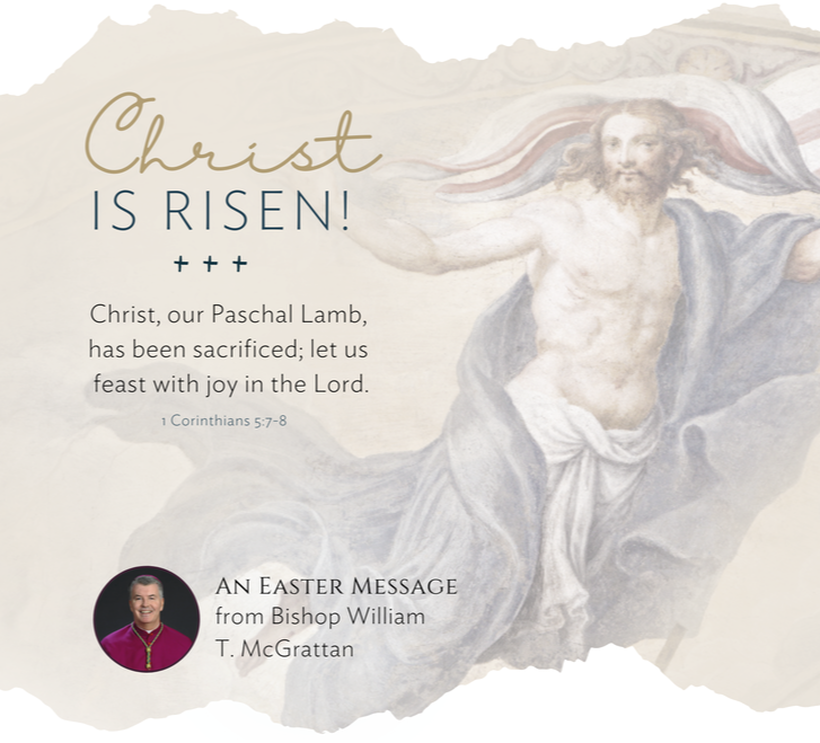
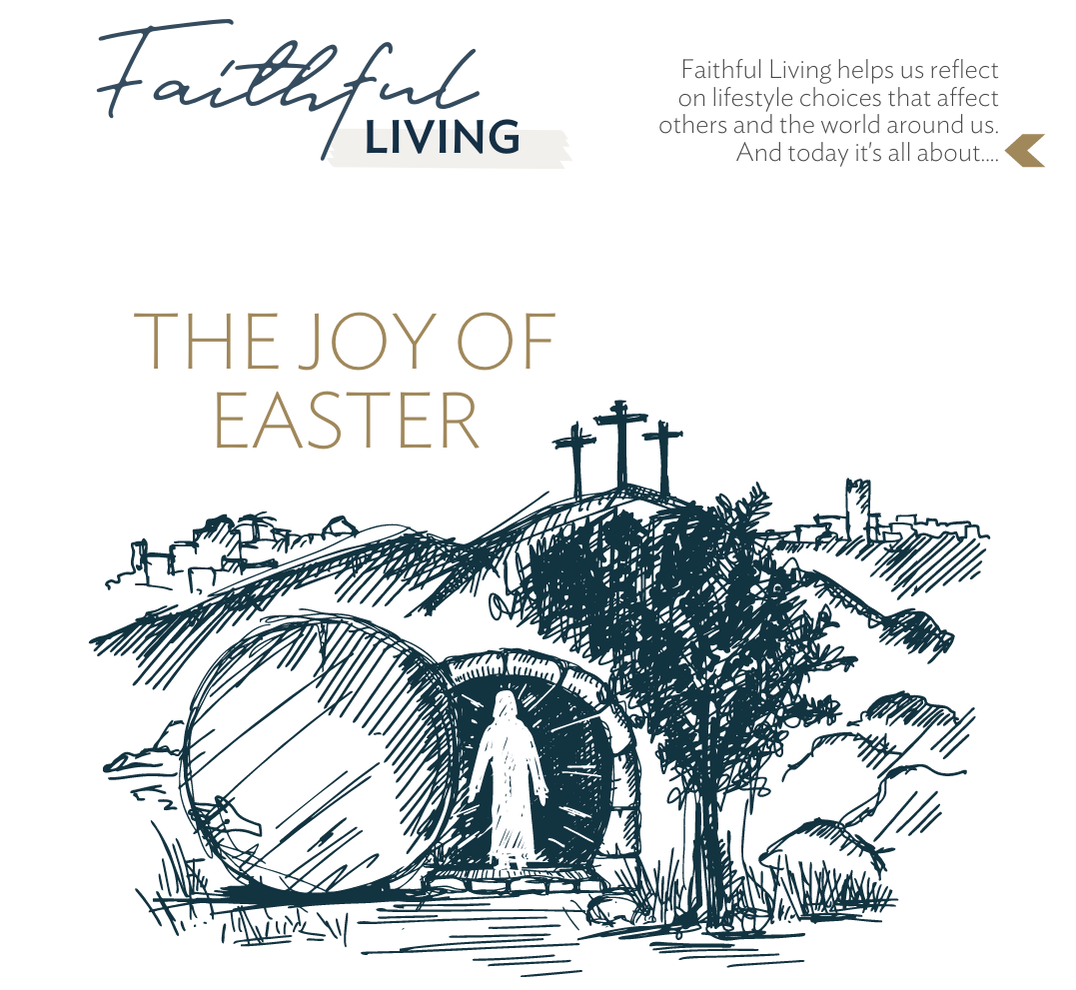
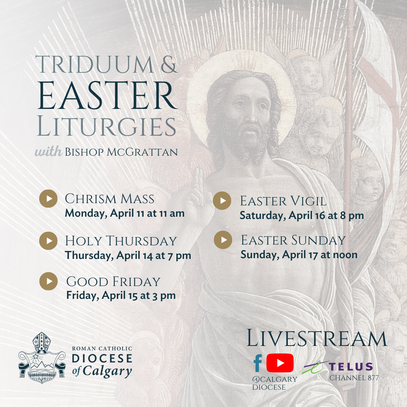
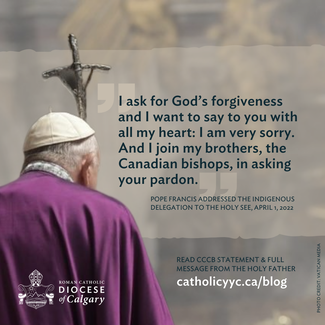
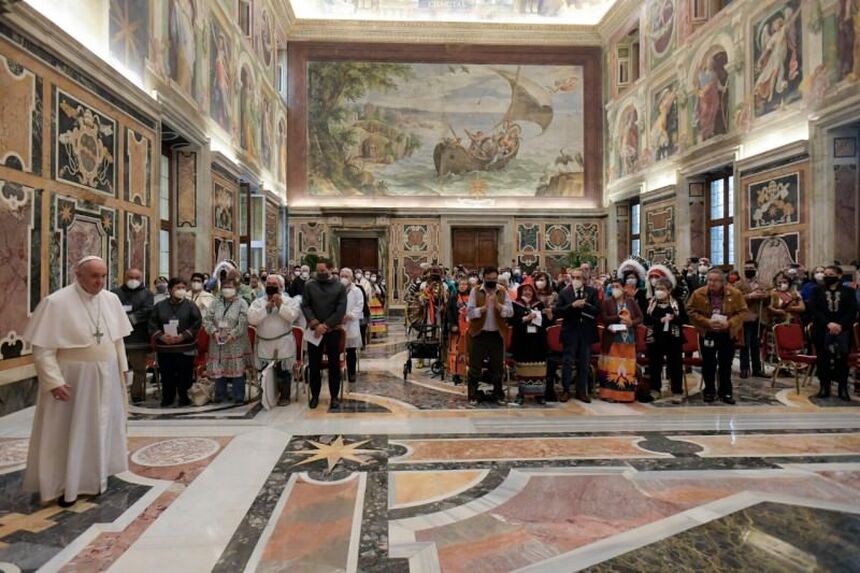
 RSS Feed
RSS Feed